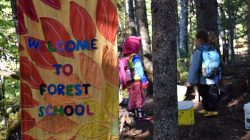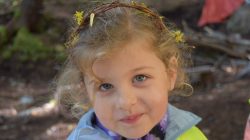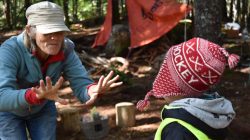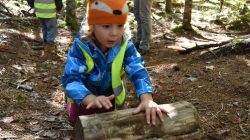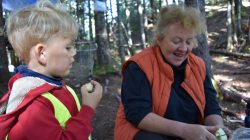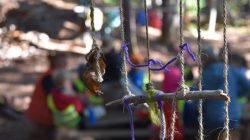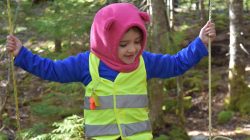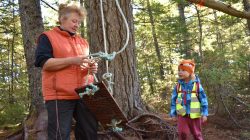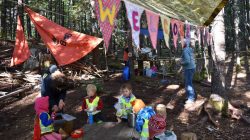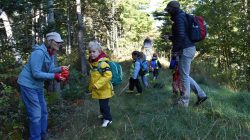EDUCATION
Wild Child takes pre-schoolers into forest for educational experience
'We’ve made a difference to kids’ lives'
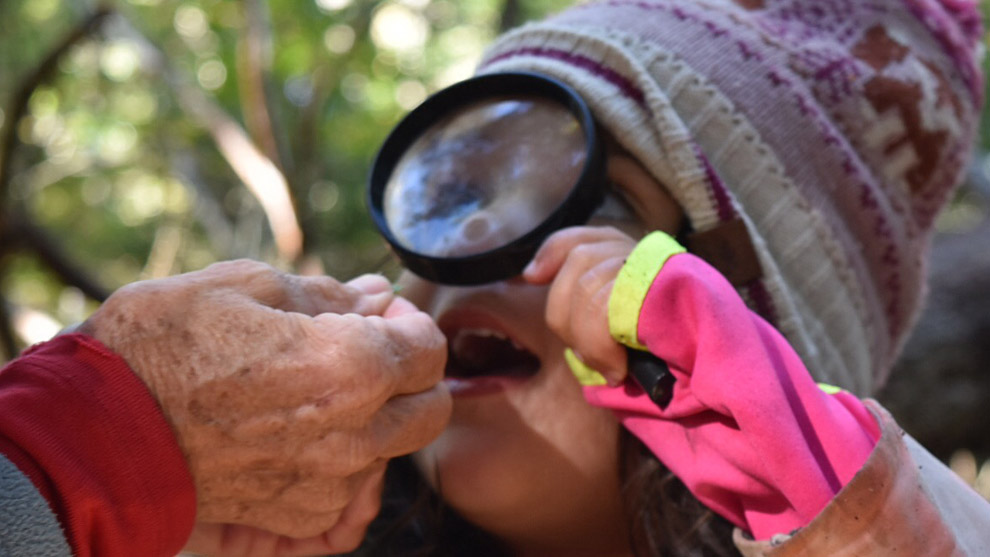
caption
Three-year-old Noelle Bergman peers through a magnifying glass.Kids in Halifax are putting down their pencils and hitting the trail.
Seven excited preschoolers gathered in a circle last week to test their emergency whistles before taking off into the woods surrounding the Maskwa Aquatics Club on Halifax’s Kearney Lake.
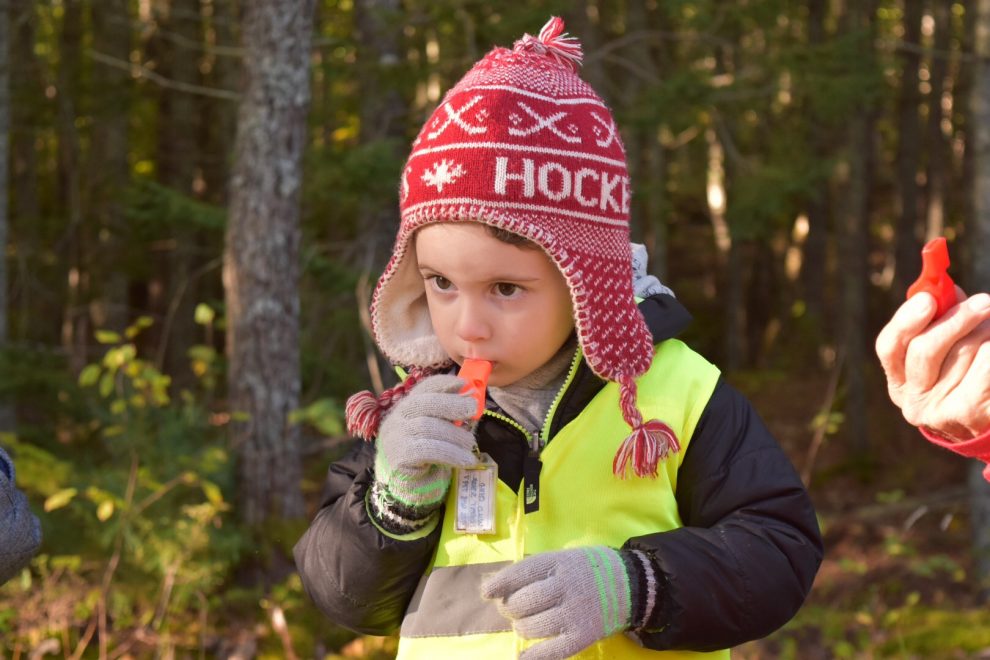
caption
Hunter Hoagland gets ready to head into the woods.“We’ve made a difference to kids’ lives,” says Sally Trower, founder of the Wild Child Forest School.
The school is a program designed to reconnect preschool-aged children with nature. The sessions, offered as half or full days, engage children in activities such as sawing and whittling wood, fort building, tree climbing and building fires.
“Physically they’re developing huge amounts,” said Trower as she watched the children navigate a steep root-covered bank.
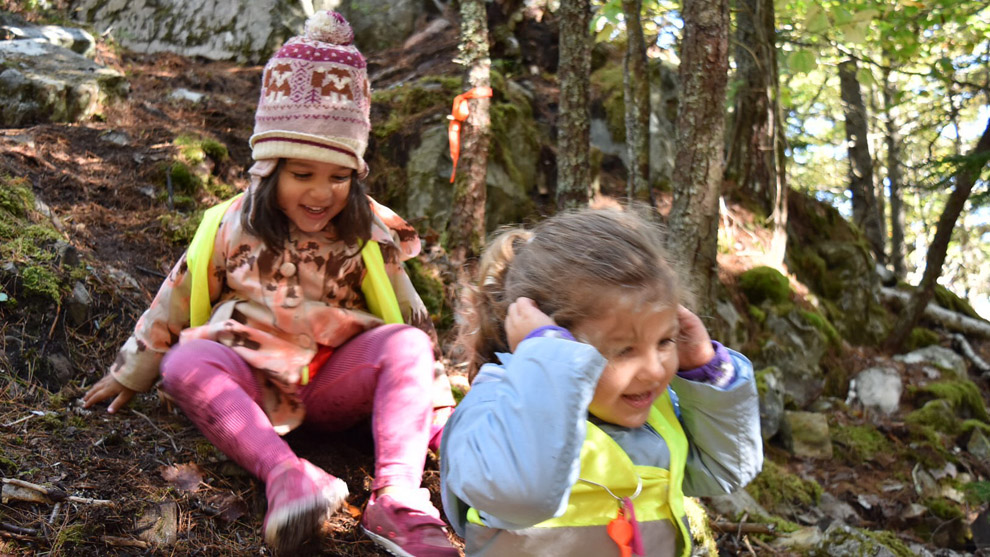
caption
Noelle Bergman and Nora Caddell slide down a steep slope.Some children are used to flat terrain or sidewalks, so the rough ground of the forest is a challenge for many of them, she said.
Because the school runs from May to November, children have the opportunity to experience the forest during three seasons and watch plants and flowers as they grow, said Trower.
“Their learning is all about sensation,” she said as the children searched a bush for blackberries. “It’s about the smell and touch and everything.”
‘He pays much more attention to nature’
Breton Hoagland said he noticed a change in his three-year-old son, Hunter, after only a short time at the school.
“He’s just way more alert now when we’re out on rocks and stuff,” he said.
“He pays much more attention to the nature around him instead of just kicking sticks. He’s pointing out flowers and bark and leaves.”
The main site
After about a half-hour walk through the woods, the children reached an open area in the forest marked off with bright orange tape.
It was nothing short of a child’s paradise.
- Entrance to the forest school.
- Three-year-old Nora Caddell shows off her crown made of twigs and flowers.
- Leader Jacqui Reeves shows Hunter Hoagland how to warm up his hands.
- Oliver King rolls a log across the ground.
- Trower shows four-year-old Sebastian Kirstine how to cut apples.
- Amelia Wos swings from the trees on a swing made out of a log.
- Trower sets up a swing for the kids.
- Wild Child Forest School at the Kearney Lake site.
- The children set off into the woods. (Photos by Sydney Jones)
The space was filled with hand-made structures and contraptions. A wooden pulley system Trower said was designed to inspire “motor skills, imagination, and coordination” ran from one end of the lot to the other, and swings made of branches hung from the trees.
“I love them problem-solving, that blows my mind,” said Trower, as one of the three-year-old girls tried to lift herself up onto a swing.
Heidi Verheul, co-founder and staff leader at the school, said that “knowing when to step in” and “when to encourage them to work it out” is an important part of leading the program.
Natural bond
Our connection with nature played a crucial role in the evolution of humans and continues to be important for children today, said Verheul, who studied biology at Saint Mary’s University.
“They’re learning what wood feels like, what moss feels like, what the air temperature feels like as the seasons get colder … the physical benefits of playing outside.”
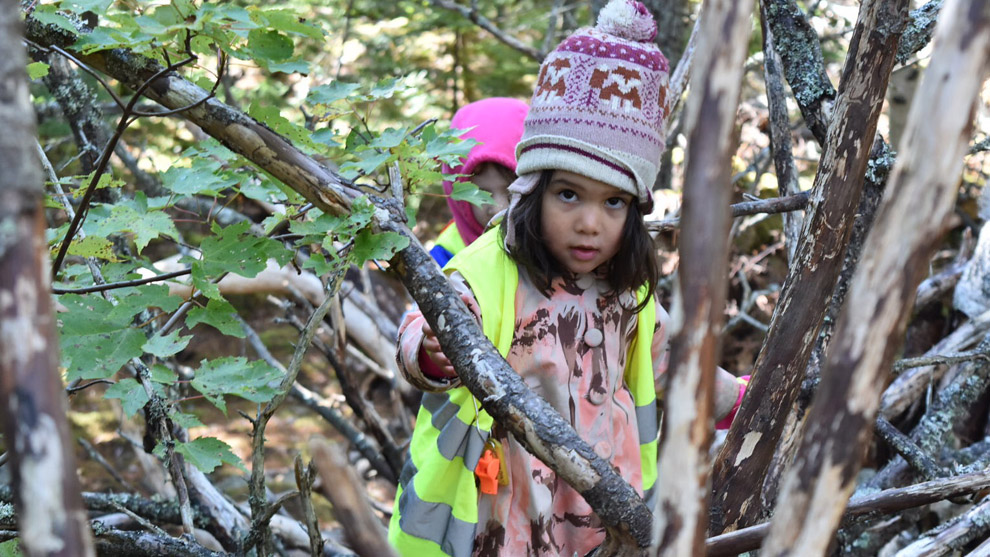
caption
Noelle Bergman leads a group of girls across a fallen tree nicknamed the “dragon tree.”Leave no trace
The main site at Kearney Lake was built with materials that can easily be taken down, explained Trower.
The site is constructed in May with the help of the children and their parents and taken down in November to “let the forest recover.”
“Everything they bring in, even if it’s compostable, they have to take out,” said Trower.
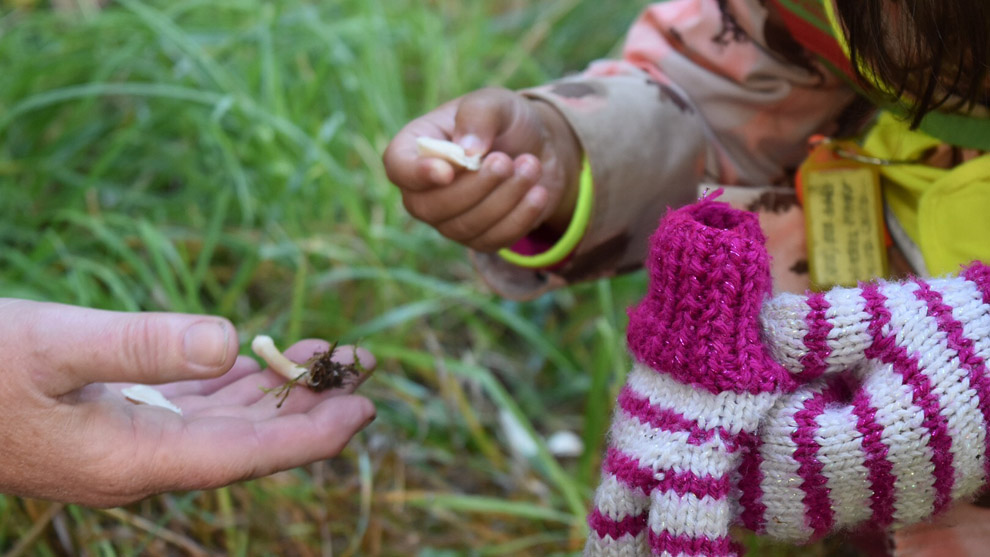
caption
Trower shows the children different types of mushrooms.The Forest School began in May 2015 at the Kearney Lake Site and has since expanded to another location in Fall River.
The school has seen around 400 children since it started, and all of the programs offered have been full and with wait lists, said Trower. Sessions usually run from seven to 10 weeks and cost around $300 per child.
The team is hoping to create a new site at the head of St. Margaret’s Bay next spring.
